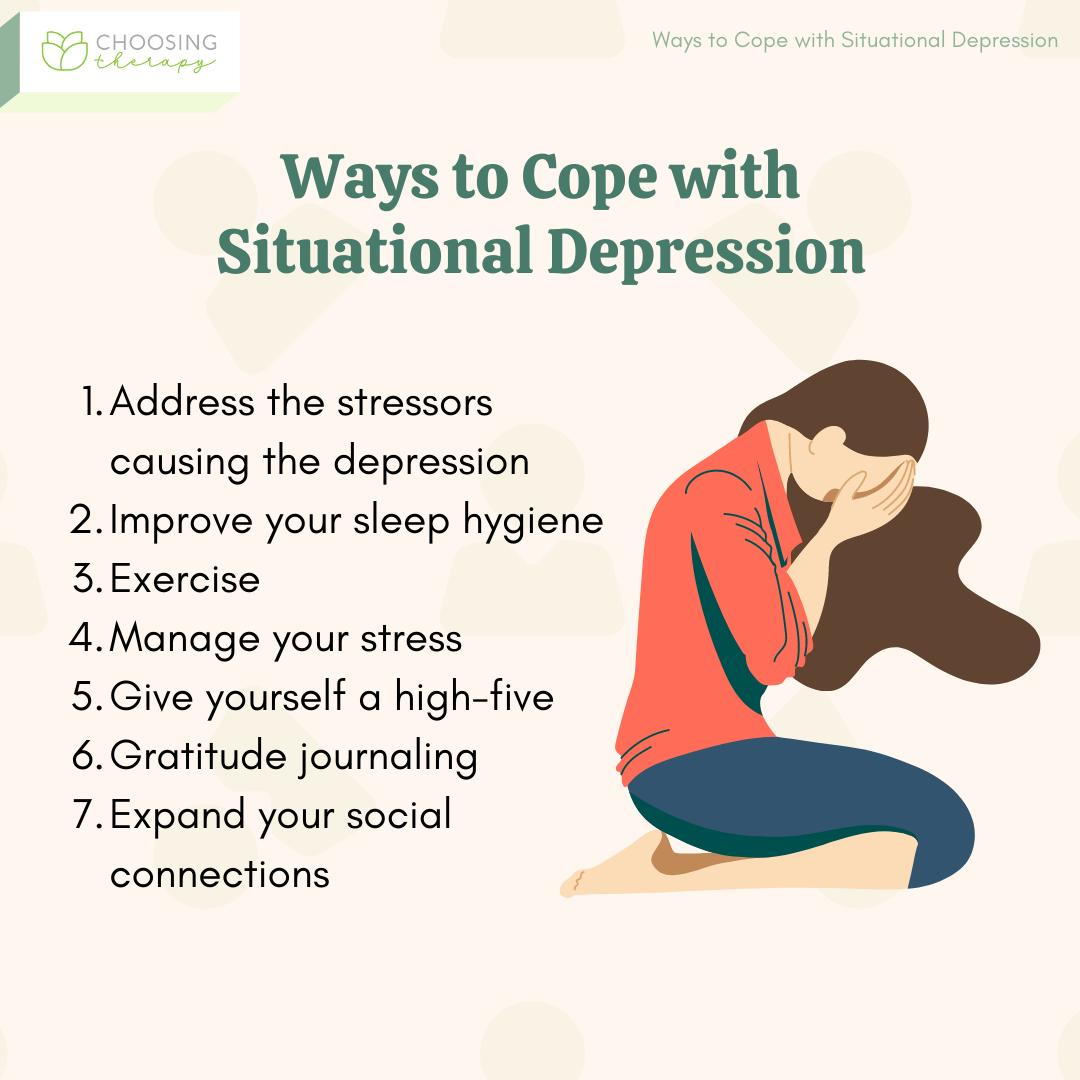Thought Pause Page

- posted: Nov. 28, 2023
When a person says they are depressed, their meaning may run the gamut from a ‘’catch all” word used to describe a general low mood to a major mental health diagnosis. You might be thinking, “Why does this matter? A low mood is unpleasant, no matter what you call it.” True, but to address the problem rather than temporarily alleviating one’s immediate symptoms, it is important to identify: the cause, the duration of symptoms, the impact on one’s daily life, their physical symptoms and the intensity of their feelings.
First, let’s make a distinction between “physical and situational depression.” Even though the symptoms of physical and situational depression may be similar, clinical depression is more debilitating and usually it does not usually improve without specific treatment. Studies show that physical depression is best addressed by a medical professional with medical or nutritional interventions, in combination with talk therapy. Situational depression can generally be effectively treated and managed by a mental health professional, who provides mental health techniques and talk therapy. Unbeknownst to many, situational depression may resolve over time with intentional self-care and without psychotherapy or medical interventions. However, if you suspect that you may be experiencing symptoms of depression, you should seek a professional diagnosis so that an accurate diagnosis and the most effective treatment can be implemented. For more information on the differences in physiological and situational depression, you may want to view this you tube presentation. (https://dominatedepression.com/situational-depression-versus-biological/#:~:text=Situational%20depression%20is%20vastly%20different%20from%20biological%20depression.,if%20you%20had%20every%20worry%20in%20the%20world.
The scope of this blog will focus exclusively on situational depression. We will define it from a mental health perspective and look at considerations for relieving symptoms of situational depression.
Definition: (Depressed Feelings v Situational Depression)
It is natural to feel uncomfortable feelings such as sadness or anger or worry or grief when stressful or painful situations happen to us. These are “normal human emotions that are often felt when a person experiences a painful life event. Situational depression is another story.
Situational depression usually begins within 3 months of a stressful event. Situational depression can be so painful, it is often referred to as being “heart sick”. A person may experience situational depression when they react to a stressful life situation, such as financial trouble, relationship issues, job dissatisfaction, holiday stress, or preparing for exams in ways that affect their ability to manage their life as usual. Simply Psychology, an organization that looks at and advises on a wide array of mental health issues identified the top 5 stressors people face today. These include death of a loved one; divorce; moving; major illness or injury; and job loss. Situational depression can also reference an undercurrent of low mood without a significant loss at the onset.
Symptoms of Situational Depression:
A person may experience ruminating thoughts or have trouble concentrating. They may become anxious or feel a sense of hopelessness. There can be physiological reactions as well. A person experiencing situational depression may have sleep difficulty, notice appetite changes, feel unexplained aches and pains, or feel like they are trudging through quicksand to get anything done. A person may gravitate toward isolation and find themselves withdrawing from friends and social events or from activities they once enjoyed.
Symptom Relief:
People who address situational depression in talk-therapy may consider some or all the following therapy goals: emotional regulation, grief resolution (if applicable,) establishing a daily routine, intentional self-care, problem-solving techniques, thought-restructuring, social support with personal boundaries, getting restful sleep and regularly engaging in play. They might expect their therapist to choose a Cognitive-Behavioral or Dialectical Behavior therapy approach, although it is the prerogative of each therapist to choose the approach, they believe best suits their client’s needs. Talk-therapy, intentional self-care, and supportive friends can expedite the healing process, but studies also show that situational depression often subsides over time, solely with self-care.
Life can be stressful, even painful, causing people to suffer very uncomfortable symptoms related to situational depression. The great news is that mental health (aka: peace of mind.) can be restored with intentional self-care, professional or friend-support, and a daily routine that includes good mental health techniques. If you are feeling a low mood that just is not getting better, reach out to a mental health professional to discuss it. If you would like to speak with me, you may reach me at: [email protected].